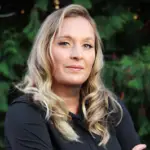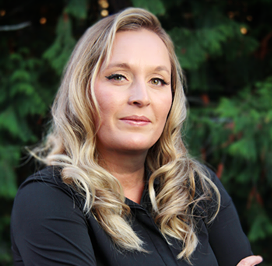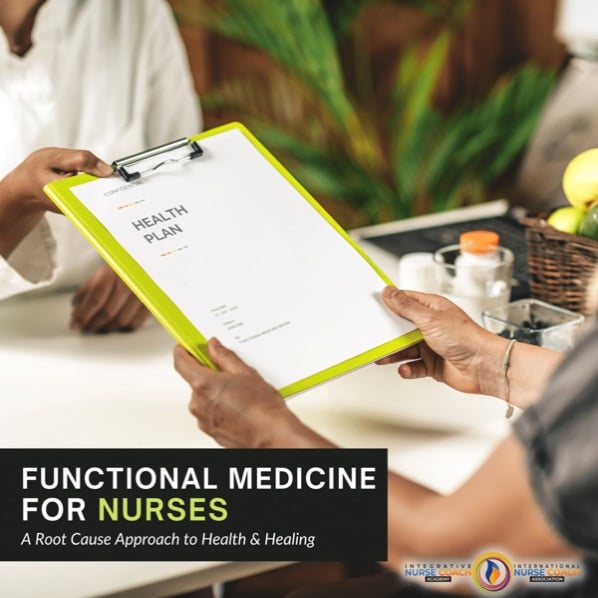The past few years have seen more and more nurses changing specialties, leaving the bedside, and questioning their call to nursing as a profession. I strongly empathize with the growing demands on my bedside nurse colleagues, and I have engaged in a growing number of conversations surrounding our original call to become nurses.
My Journey to Becoming a Functional Medicine Nurse
I started nursing school to become a midwife, because I wanted to empower women to believe in the power of their own bodies. I quickly realized that there was more to this calling than just pregnancy and childbirth, and I developed an interest in empowering people and healing them. The human body is so interesting!
In my eight plus years at the bedside, I worked primarily in critical care float nursing and cardiac care. Passing medications in rapid succession, discharge followed by admission, and little time for patient education all left me feeling like I wasn’t healing or empowering anyone.
This led me to nurse practitioner school, and I was a family nurse practitioner for four years. In that time, I followed the medically prescribed algorithms I was taught in school, and I met the metrics for writing the right number of prescriptions per diagnosis required by my corporation. They never asked me how much I was teaching anyone.
It felt like no one got better… I was managing diseases.
As my frustration with the allopathic system grew, I studied nurse coaching and functional medicine on the side, and became board certified in both. The more I learned about functional medicine approaches, the more I realized it was the solution to the disheartening role I was playing in our current healthcare system.
What is Functional Medicine?
Functional medicine is also called “root cause medicine” because we look for the root cause of health conditions. We look at the person as a whole, hear their unique story, and help them uncover the underlying mechanisms at play in their health concerns. It is often related to their lifestyle, their food choices, and their exposures such as toxins- all in combination with their genetic predispositions.
Speaking of Genetics..
 There is a growing prevalence of nearly every chronic health condition, including heart disease, diabetes, autoimmune diseases, and cancer. If genetics were the sole reason we inherit these conditions, why is the prevalence increasing over time despite advances in modern medicine? It is directly related to our lifestyles and how we activate our genes!
There is a growing prevalence of nearly every chronic health condition, including heart disease, diabetes, autoimmune diseases, and cancer. If genetics were the sole reason we inherit these conditions, why is the prevalence increasing over time despite advances in modern medicine? It is directly related to our lifestyles and how we activate our genes!
My clients often consider their family health history to be their own destiny. When I help them understand the cultural aspects we inherit from our families as well (our diet and exercise habits, whether we prioritize sleep and self-care, how we navigate relationships, careers, stress, and more), my clients can see the role that these choices have in activating our genes.
It is very empowering for them, and often it is a huge relief! They are able to take ownership of their destiny and their future health and happiness. It is an incredible gift to be able to help restore health for my clients.
Functional Medicine for Nurses: How and Why
As I began studying functional medicine, I realized how much of the content was material I had learned in nursing school, but they are topics that are rarely given any priority in modern healthcare- our food choices, essential nutrients, stress, lifestyle, toxin exposures, and more. As I listened to lecture after lecture reviewing this fundamental nursing content before moving on to the how of functional medicine, a light bulb went off for me!
Nurses already know functional medicine!
We learned so much of it in our initial nursing training, but we weren’t given the tools to act. With functional medicine, we return to our nursing roots, and we layer in the how to restore health for our clients.
For nurses and nurse practitioners currently practicing functional medicine, we see chronic diseases like heart disease and diabetes reversed. Fertility is restored. Hormones become balanced. We see lifelong anxiety and depression resolve. Immune health is addressed in those with autoimmune diseases, asthma, eczema, and allergies. Heart rhythms and high blood pressure stabilize, and blood vessels become less inflamed. Risks for cancer drastically reduce.
I often ask nurses I encounter why they went to nursing school, and their answers are often similar to my own- to help people, to advocate for others, to empower patients, to educate, and to HEAL.
Until I began practicing functional medicine, I never truly felt I was living my calling, but now I know I am.
Functional Medicine For Nurses:
A Root Cause Approach to Health & Healing
When I was invited to develop the Functional Medicine for Nurses course for the Integrative Nurse Coach® Academy, it was an easy YES! I am so thrilled to share what I have learned in a way that is targeted and meaningful for nurses, nurse coaches, and nurse practitioners in a format that provides an affordable, comprehensive foundation in functional medicine.
The functional medicine HOW combined with our inherent nursing knowledge is the most powerful set of skills to truly revolutionize what we offer our clients, and to finally offer them a path to true happiness and healing!

Brigitte has always had a passion for patient empowerment, education, and healing. After eight years as a critical care float nurse, Brigitte attended Georgetown University and became a family nurse practitioner. During her four years as a primary care provider, she began studying functional medicine, and became a board certified menopause practitioner & nurse coach (through INCA). Currently, she has a functional medicine consulting practice and teaches nursing students.
- Brigitte Sager DNP ARNP FNP-C NC-BC AFMC CNEhttps://inursecoach.com/author/brigitte-sager-dnp-arnp-fnp-c-nc-bc-afmc-cne/
- Brigitte Sager DNP ARNP FNP-C NC-BC AFMC CNEhttps://inursecoach.com/author/brigitte-sager-dnp-arnp-fnp-c-nc-bc-afmc-cne/
- Brigitte Sager DNP ARNP FNP-C NC-BC AFMC CNEhttps://inursecoach.com/author/brigitte-sager-dnp-arnp-fnp-c-nc-bc-afmc-cne/







